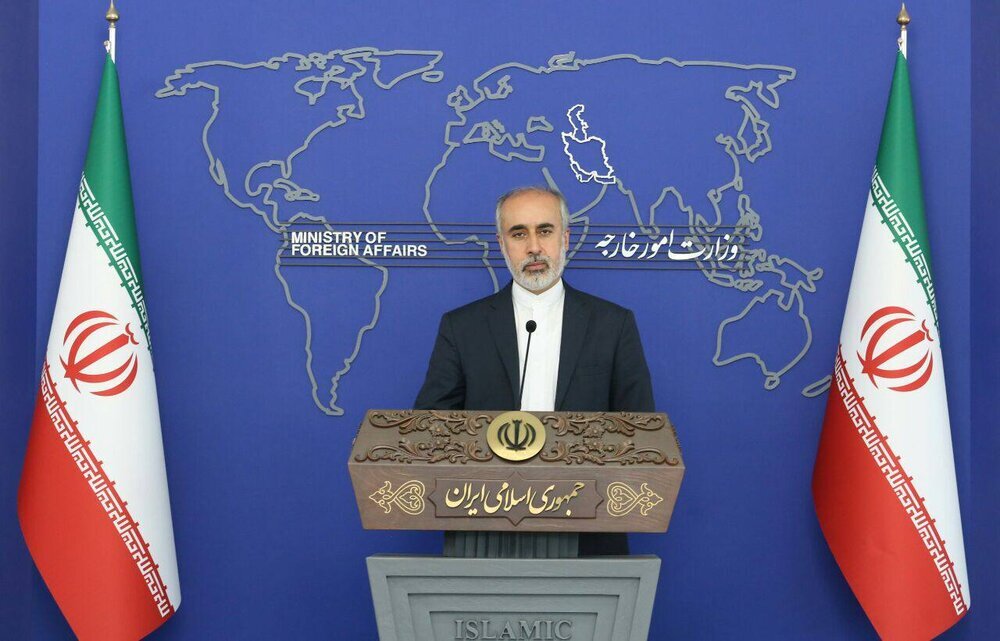TEHRAN- Addressing a query regarding the anti-Iranian assertion made by the chair of the U.S. House Intelligence Committee, the spokesperson for the Iranian foreign ministry stated that nuclear weapons have never been a component of Iran's defense and security strategy.
Nasser Kanaani addressed inquiries from the Sputnik news agency regarding comments made by Mike Turner, the chairman of the U.S. House of Representatives Intelligence Committee, about Iran's potential acquisition of nuclear weapons by the end of this year.
He stated, “The Islamic Republic of Iran's strategy and nuclear doctrine focus on the peaceful utilization of nuclear energy. This approach aligns with the country's developmental needs and is grounded in its international rights and obligations under the Non-Proliferation Treaty and the Comprehensive Safeguard Agreement.”
The Treaty on the Non-Proliferation of nuclear weapons (NPT) represents a significant international accord designed to curb the proliferation of nuclear arms while encouraging the peaceful application of nuclear energy.
Additionally, a Comprehensive Safeguards Agreement (CSA) is established between the International Atomic Energy Agency (IAEA) and a non-nuclear-weapon State as part of the NPT framework. The primary objective of a CSA is to enable the IAEA to ensure that nuclear materials are not misappropriated for the development of nuclear weapons or other explosive nuclear devices.
Kanaani emphasized that nuclear weapons have never been part of Iran's defense and security strategy.
“These unfounded and fundamental allegations, which have been perpetuated by U.S. officials in various forms for decades, are intended to undermine Iran's peaceful nuclear program and align with the Iranophobic agendas of Zionist entities,” he remarked.
The spokesperson further noted that this narrative has historical roots in the statements made by Israeli Prime Minister, Benjamin Netanyahu, over the years.
“U.S. officials have repeatedly issued false deadlines regarding Iran's nuclear weapons development as part of their Iranophobia strategy, and these claims have consistently been debunked. The Islamic Republic of Iran does not regard such statements as credible. It is important to recognize that these assertions often emerge in the context of the U.S. electoral landscape, which may serve electoral interests and the dynamics of bipartisan competition,” he stated.
Kanaani also addressed the inquiry, “What advantages do members of the American House of Representatives gain by reiterating such accusations against Iran at this pivotal moment in the region?”
“The assertion that Iran is on the brink of developing nuclear weapons has consistently been propagated by the Israeli government and its allies in Washington, yet the inaccuracies of these claims have been demonstrated repeatedly. The repetition of these unfounded allegations does not impact the United States, as it will not undermine the Islamic Republic of Iran's determination to advance its peaceful nuclear program,” he emphasized.
Kanani emphasized that it is important to remember that the current circumstances regarding Iran's nuclear program stem from the United States unilateral and unlawful exit from the JCPOA, along with the breach of all stipulations outlined in Security Council Resolution 2231.
United Nations Security Council Resolution 2231, adopted on July 20, 2015, supports the Joint Comprehensive Plan of Action (JCPOA) concerning Iran's nuclear program. This resolution establishes a framework for inspections to verify that Iran's nuclear activities are conducted for peaceful purposes.


No comments:
Post a Comment